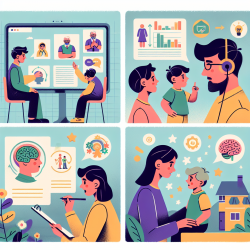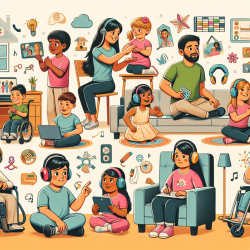As practitioners dedicated to improving outcomes for children with acquired brain injuries (ABI), it's crucial to base our approaches on robust research. The study titled "Can, Want and Try: Parents’ Viewpoints Regarding the Participation of Their Child with an Acquired Brain Injury" offers valuable insights into the barriers and facilitators that impact community participation for these children. By understanding these factors, we can better tailor our interventions to support meaningful participation.
Understanding the Research
The study utilized Q-methodology to identify three distinct viewpoints among parents regarding their child’s participation in community activities. These viewpoints are:
- Viewpoint One: "We can participate!" – Parents in this group felt their children had good participation outcomes due to supportive relationships and positive community attitudes.
- Viewpoint Two: "We want to participate" – These parents wanted their children to participate but faced significant environmental barriers such as financial constraints and lack of supportive community attitudes.
- Viewpoint Three: "We try to participate..." – Parents here noted that participation was difficult due to a combination of environmental barriers and their child's impairments, such as mobility and behavioral difficulties.
Implementing the Findings
To enhance participation outcomes, practitioners can consider the following strategies:
- Foster Supportive Relationships: Encourage the development of friendships and social networks for children with ABI. Group therapy sessions and community programs can provide opportunities for children to form meaningful connections.
- Address Environmental Barriers: Implement interventions like context therapy, which focuses on modifying tasks and environments to support participation. Additionally, advocate for more inclusive community programs and policies.
- Empower Parents: Use family-centered practices and occupational performance coaching to build parents' capacity to support their child's participation. Address practical barriers such as transportation and financial constraints through targeted support and resources.
Encouraging Further Research
While this study provides valuable insights, more research is needed to explore the effectiveness of specific interventions, such as context therapy and occupational performance coaching, in improving participation outcomes for children with ABI. Practitioners are encouraged to engage in research and contribute to the growing body of knowledge in this area.
To read the original research paper, please follow this link: Can, Want and Try: Parents’ Viewpoints Regarding the Participation of Their Child with an Acquired Brain Injury.










